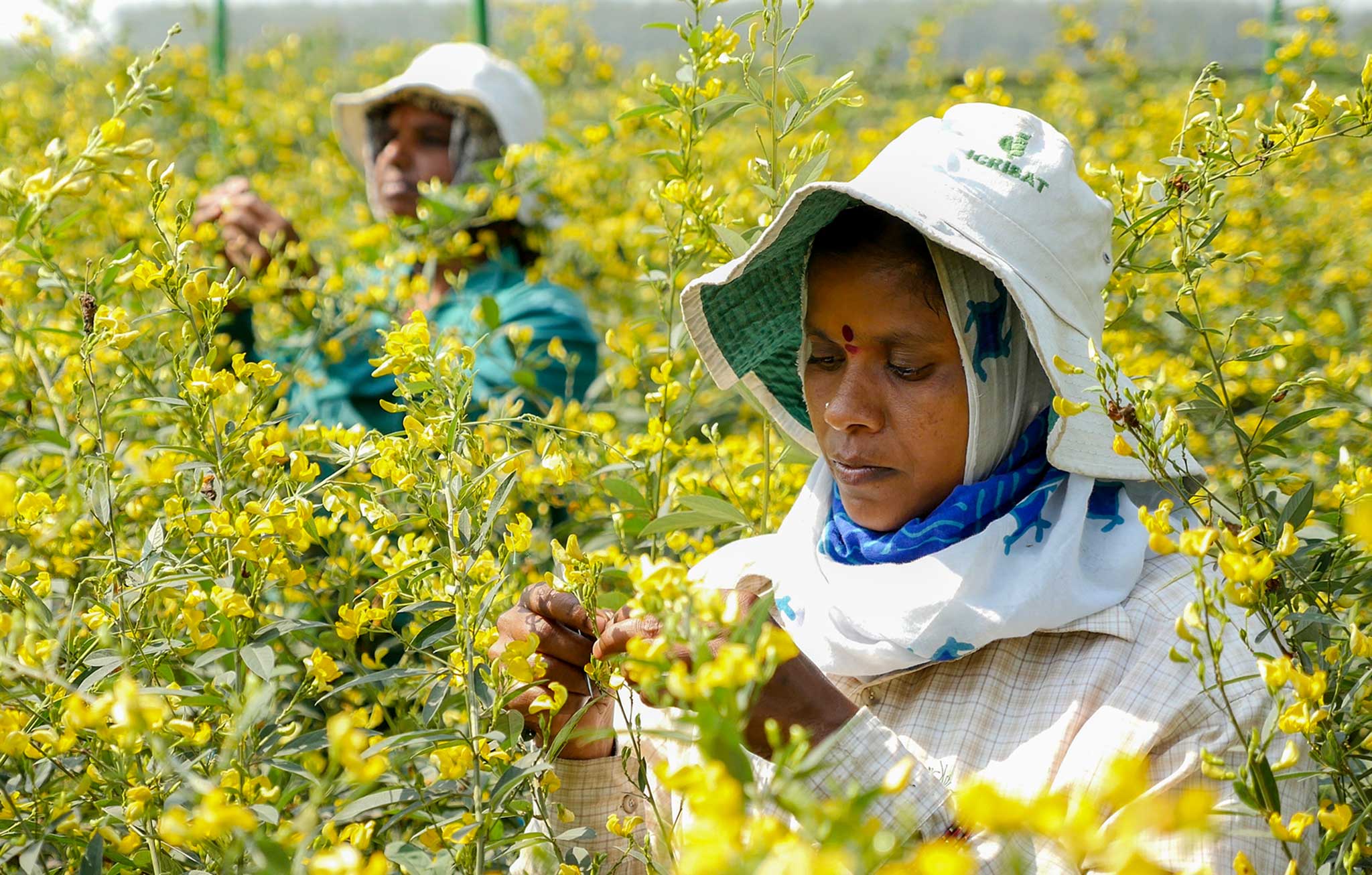Scientific name: Cajanus cajan (L.) Millsp.
Common name: Toor (Hindi)
India leads the charge as the world's top producer of pigeonpea, with an impressive output of 4.32 million tons grown on 5.2 million hectares in 2021, boasting a productivity of 825 kg per hectare (FAOSTAT, 2021). Embracing this nutritious powerhouse, other global producers including Myanmar, Malawi, Kenya, Uganda, Haiti, Democratic Republic of Congo, Nepal, and Dominican Republic contribute significantly to the global pigeonpea family.
ICRISAT takes immense pride in its dedicated pigeonpea breeding program, committed to developing superior varieties and hybrids that stand at the forefront of agricultural innovation. Our mission revolves around delivering high-yielding, climate-resilient, and nutrient-dense pigeonpea crops, while also incorporating market-preferred traits to cater to diverse needs.
With the goal of enhancing food and feed productivity, our breeding program focuses on generating a continuous stream of improved varieties that hold the promise of greater yields, added value traits, and the potential for higher incomes, ultimately uplifting livelihoods in the communities we serve.
Key research priorities under our pigeonpea breeding program include:

Early Maturity: Creating pigeonpea varieties and hybrids maturing in 120-135 days, ensuring timely harvest and efficient crop management.
High Yielding: Breeding for pigeonpea varieties and hybrids capable of achieving a remarkable potential yield of 2.5 tons per hectare, promoting food security and prosperity.
Disease Resistance: Identifying resistant donors and breeding for varieties and hybrids with resistance against Wilt, Sterility Mosaic, and Phytophthora Blight, safeguarding crops from debilitating diseases.
Pest Tolerance: Developing pigeonpea lines with tolerance to the Pod Borer Complex, including Helicoverpa armigera, pod wasp, plume moth, and pod fly, ensuring crop protection and enhanced productivity.
Climate Resilience: Breeding for cold tolerance, enabling pigeonpea lines to withstand temperatures ranging from 2°C to 10°C, as well as heat tolerance, with lines enduring temperatures from 32°C to 45°C.
Protein Content: Prioritizing breeding for varieties with protein content exceeding 22%, promoting nutrition and health benefits for consumers.
Drought Tolerance: Emphasizing drought tolerance in pigeonpea breeding, a critical trait for combating water scarcity and ensuring sustainable crop production.
Pigeonpea for Rice Fallows: Tailoring pigeonpea varieties to thrive in rice fallow conditions, maximizing land use efficiency and crop rotation benefits.
At ICRISAT, we remain steadfast in our commitment to pioneering advancements in pigeonpea breeding, as we work in tandem with farmers, researchers, and partners to achieve agricultural excellence and foster a resilient, prosperous future for all communities dependent on pigeonpea.
ICRISAT's breeding program is an ever-evolving process, driven by constant review and updates to align with the dynamic agricultural landscape. We actively engage with various stakeholders, including farmers, consumers, processors, and key players in the agri-food value chain, to identify market segments and prioritize breeding traits that address prevailing challenges and cater to diverse preferences.
In our pursuit of excellence in pigeonpea breeding, we have identified four distinct market segments, each targeted at meeting specific needs and ensuring climate resilience:
Medium-Duration Climate Resilient Pigeonpea Varieties: These varieties are characterized by their medium-duration growth cycle and are carefully bred to exhibit resilience to climate-related stresses. Additionally, they showcase resistance to diseases and exhibit tolerance to pests, ensuring consistent and reliable crop production.
Mid-Early to Early Duration Climate Resilient Pigeonpea Varieties: Focused on early maturation, these pigeonpea varieties are designed to adapt well to changing climatic conditions. With disease resistance and pest tolerance, they offer a valuable solution for addressing pressing agricultural challenges.
Super-Early Climate Resilient Pigeonpea Varieties: Tailored for rapid growth and early harvest, these super-early pigeonpea varieties exemplify superior resilience against adverse environmental conditions. Their disease resistance and pest tolerance contribute to their popularity among farmers seeking dependable, high-yielding crops.
Hybrid Pigeonpea Parental Lines and Hybrids for Early Duration Group: With a strong emphasis on early maturation, these hybrid pigeonpea parental lines and hybrids have been developed to meet the demands of the early duration market. By combining desirable traits such as disease resistance and pest tolerance, they contribute to sustainable and productive agriculture.
In each of these market segments, a comprehensive set of key traits is considered during the breeding process. Traits like maturity duration, grain yield, fusarium wilt disease resistance, sterility mosaic disease resistance, seed size, color, shape, and shelling recovery are diligently evaluated and optimized to produce pigeonpea varieties that deliver exceptional performance and address the needs of various stakeholders.
Should you have any questions our dedicated support team is ready to help. Please email: research@icrisat.org